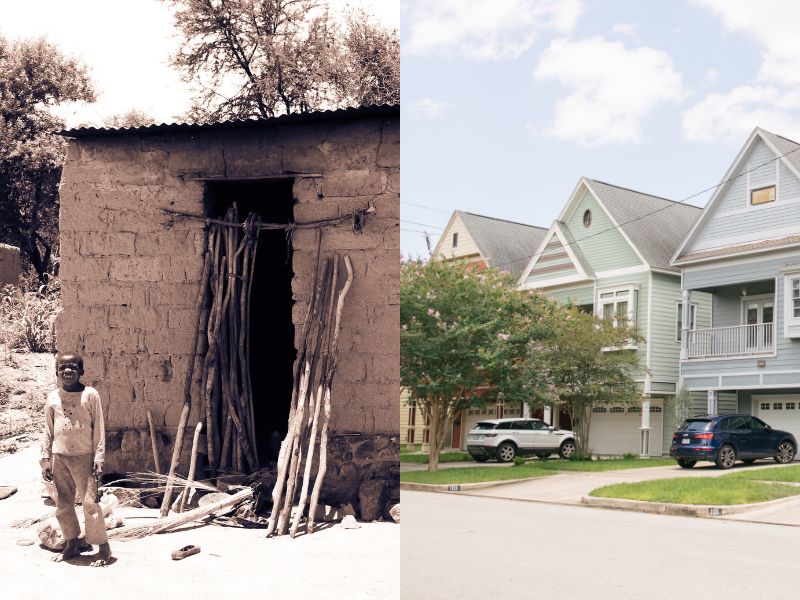In modern society, marriages between Vietnamese and foreigners have become increasingly common. Vietnamese law has established specific regulations to address child custody issues when one spouse is a foreigner. These provisions not only resolve disputes but also protect children’s rights, ensuring a stable and optimal environment for their development. To provide deeper insights into child custody in such cases, OTIS LAWYERS examines the legal factors influencing court decisions and explains the rights and obligations of the involved parties.
How is child custody determined under Vietnamese law in cases of divorce between a Vietnamese and a foreigner?
According to Vietnamese law, child custody after divorce is determined based on the principle of safeguarding the child’s best interests. This fundamental principle applies to all divorce cases, including those involving Vietnamese and foreign parties. Courts prioritize the child’s comprehensive development, irrespective of the parents’ nationalities. Key considerations include the child’s relationship with each parent, living conditions, caregiving abilities, and other welfare-related factors.
In these cases, the court may also consider international factors such as agreements and laws of relevant countries, creating a complex legal framework that demands careful evaluation by the divorcing parties.
What factors do courts consider when determining child custody in such cases?
When adjudicating child custody cases involving a Vietnamese and a foreigner, courts consider several critical factors to ensure the child’s best interests:
Priority for the mother in cases of children under 36 months old:
The 2014 Law on Marriage and Family states that “children under 36 months old are to be directly placed with the mother unless the mother is unfit to care for the child or otherwise agreed by both parents.”
The child’s relationship with each parent:
Courts assess the emotional bond between the child and each parent, focusing on who has been more involved in caregiving and nurturing.
Living conditions and parenting environment:
Factors such as housing, financial stability, employment, and overall living conditions are considered to determine who can provide a stable environment.

Health of the child and parents:
The health status of both the child and parents is reviewed to ensure the caregiving parent can meet the child’s physical needs.
The child’s preference:
For children aged 7 and older, the court may consider their preference, although it is not the sole deciding factor.
Other factors:
These include the attitudes and behavior of each parent toward the child, willingness to cooperate in parenting, and any other elements affecting the child’s welfare.
What are the rights and obligations of the non-custodial parent after divorce?
Non-custodial parents retain specific rights and responsibilities toward their children as outlined in Vietnamese law:
Visitation rights:
They have the right to visit their child as agreed upon by the parents or stipulated by the court, maintaining the parent-child bond.
Child support obligations:
Non-custodial parents are required to provide financial support for the child until they reach working age or become independent.
Participation in parenting:
They remain involved in key decisions regarding the child’s education, health, and other important matters.

What are the procedures for requesting child support and visitation after divorce?
To request child support or visitation rights, the following steps are typically required:
Filing a petition:
Submit an official request to the competent court, ensuring all details are accurate and complete.
Preparing necessary documents:
Required documents include marriage certificates, the child’s birth certificate, the divorce decree, proof of income and assets, and other relevant evidence.
Attending court hearings:
The court will hold hearings where both parties can present their case and evidence to support their claims.
Final Thoughts
Child custody in divorce cases involving Vietnamese and foreigners requires careful legal consideration to balance the rights of all parties while prioritizing the child’s well-being. As every case is unique, seeking guidance from experienced lawyers can help navigate the complexities and ensure a fair resolution.
For any questions or comments, please contact:
OTIS AND PARTNERS LAW FIRM
Office address: 2nd Floor, CT3 Building, Yen Hoa Park View Urban Area, No. 3 Vu Pham Ham Street, Yen Hoa Ward, Cau Giay District, Hanoi
Email: info@otislawyers.vn
Hotline: (+84)987748111


 Tiếng Việt
Tiếng Việt 한국어
한국어 中文 (中国)
中文 (中国)